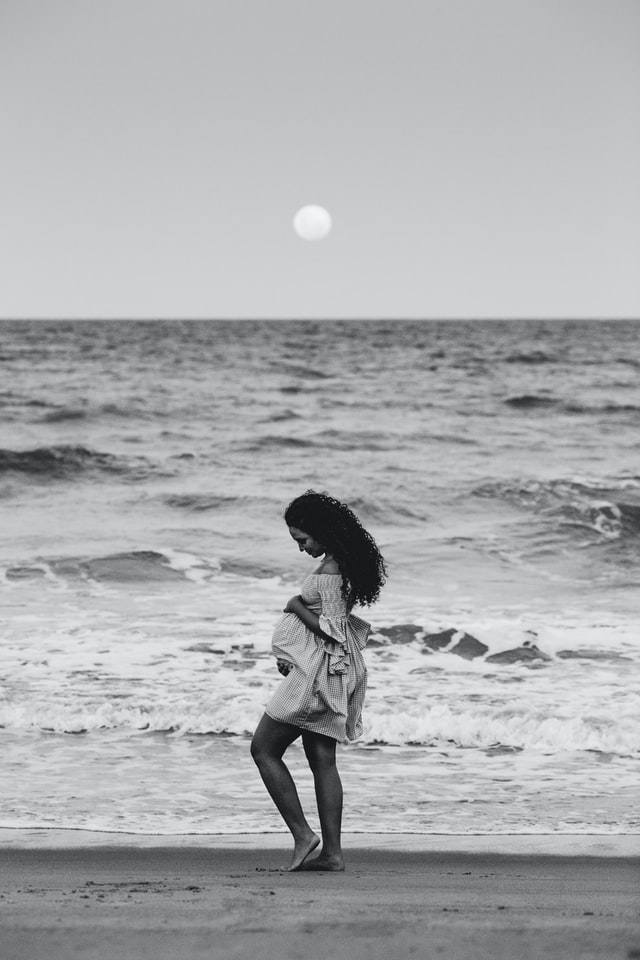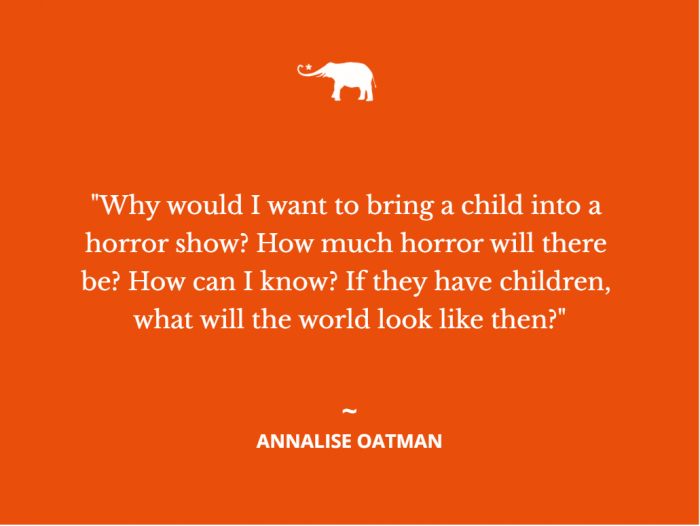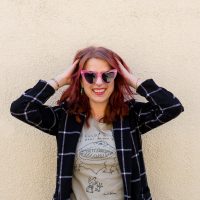Nestled under layers of semi-clean blankets and duvets with our hot coffees, my partner and I spread out into deep time on Sunday mornings.
Days of pretending we could always be okay, always be safe and warm and fed, with blankets and coffee and a home, without having to do anything. Imagine it!
With permission to just lounge in bed all day if we feel like it, warm and cozy and unpressed. Like children getting into a fort, our Sundays become a secret world we’ve created, cut off from the horrible exigencies of “real adulthood.”
How dare anyone call me on a Sunday. This is the Lord’s. F*cking. Day. And maybe in our wistful desire to be fully present, to make time dilate inside that Sunday fort, it does. Maybe just a little.
We talk about our “emotional needs” and other things that (we think) will help hold our relationship together. We f*ck. (Yes, we are—sometimes—one of those “scheduled” couples. It’s good enough for me.) And we lounge and talk about the state of the world, about Jeff Bezos, about the poor, and in general about “what’s going to happen” on this planet in the 21st century.
Sometimes we talk about marriage. And I, the female partner, sometimes gently remind him that if we wait another year or two, then we’re planning on a geriatric pregnancy.
This is not because I’m dying to get pregnant tomorrow (says my responsible, cool, jaded adult self). I’m not. But it’s also not because I don’t care. You see, I am a Millennial woman, aged 33…and a half (in August). The truth is that, in this precise moment, I am deeply conflicted when it comes to the topic of childbearing.
I still remember the first time I realized that I had the kind of body that could be in that miraculous state called “pregnancy.” I was probably about five or six, that age when a sense of gender identity begins to form and coagulate (or form and confound, as the case may be). It was like an equation. Mommy is a girl, and mommy gets pregnant. I am also a girl, so I can get pregnant, too! I still remember the way the sun was falling through the slatted blinds of my old bedroom window as I lay in bed and realized it. I could be pregnant. I could be a mommy. Rapture.
And from that day forward, I said what so many girls say (to each other, in private): “I can’t wait!” And I meant it. I couldn’t wait. I wanted it to happen tomorrow, if it could. My first memory of being completely smitten and consumed by obsessional excitement and fantasy was a two-week period of waiting for a realistic newborn baby doll to arrive in the mail when I was in the first grade.
I thought of her every day in school, her baby clothes, her diapers, her bottle. And I waited, with baited Goldfish breath. And she came, and I loved her. Baby Born, the brand was called. She even came with a potty and different outfits. I couldn’t wait to fuss over her. A taste of heroin. Beautiful dreams.
And forever afterward, in secret, I couldn’t wait. I didn’t think it was possible that any woman ever wanted to be pregnant more than I. Depending on the context, this fire was often secret. And I watched in amazement as, over the years, other women got pregnant before me. Could it be possible they wanted it more than I did? How could there be a stronger desire?
Despite that raging, secret fire, I exercised sufficient responsibility to make it to my 30s with no accidental pregnancies. I wanted to have a career first. I wanted to build a nest, and I wanted to have “done enough” in my life already that I wouldn’t resent my children. I talked to gynecologists about it from time to time and absorbed the general message that, while female fertility is in a very slow decline throughout the 20s, you still have some good childbearing years in the early 30s. By age 35, the pregnancy is considered “geriatric” (carrying a slightly higher but ever-increasing risk of complications and birth defects), but you can probably still get pregnant if you give it the old college try. Usually at around 42 (I was told), female fertility takes a nosedive.
Prizing my unborn children already as much as I did, I thought, “Well then. My early 30s, before age 35, would probably be the sweet spot to aim for.”
I dated someone for three years in my late 20s who I thought would be the father of my children, and that didn’t work out. Hitting the dating market at 29/30 pushed things to a slightly higher level of urgency. I met my current partner a couple of weeks before I turned 30. We moved in together a year later while I was building my private practice. Thirty-one. Got my private practice to “go critical.” Thirty-two. Finished writing my first book. Thirty-three/Thirty-four. That’s where we are now.
And along the way, some of the most pessimistic climate reports that the world has ever seen were published, and then COVID-19 happened. The phrases ecological dread and ecological despair became common coin.
If you read Jem Bendell’s Deep Adaptation when it came out in 2018, you could not have been too terribly surprised by Covid. The report predicts massive shocks to the political, economic, and social systems that have held “the world as we know it” together coming very soon, and not just to the world’s poor, though they would certainly bear the brunt of it. To you, reader. To everyone you know. Shocks could be pandemics (we would likely see more of those as the planet warmed)—natural disasters, food and water shortages, climate refugees, and forced migrations at a totally unprecedented scale.
Say what you will about the “systems that have held the world together as we know it.” I agree with you. They’re rife with racism, moldering with corruption, and increasingly owned and operated by a small handful of the world’s elite who seem content to carry on with the cheerful butchery as is, with the unending onslaught of insults to the delicate ecological system that sustains life on this planet.
God knows it all needs to change. But when food supply chains, for example, are disrupted severely enough that you don’t have enough to eat, or when people everywhere are so anxious and desperate that they’re wary of their neighbors and increasingly polarized (as happens in times of great anxiety and uncertainty), or when pandemics kneecap economies and then some, you are going to notice.
We may need better systems, but who’s to say what the transition phase will look like (when it comes to things as simple as food and water)? Who’s to say what the other side will look like? Who’s to say when and whether we’ll ever reach a conceivable “other side?”
I’d been reading about the Malthusian theory of exponential population growth as a kid, and predicted early on that I would live to see large-scale tragedies in the 21st century. (I don’t think that makes me special. A kid who made that prediction at the start of the 20th century would’ve been dead-on.)
So in a way, none of this has ever surprised me. Yet, it feels increasingly common now to hear people on either side of any political divide utter the words, “Things are really bad right now,” or, “In these troubled times . . .” It seems, increasingly, to be the consensus everywhere.
Yet, there is always an affirmation of life, on some level, in the conscious choice to have a baby. An affirmation that, despite everything, life is still worth living. An affirmation that there will continue to be an inhabitable world, somehow, and one that will be able to sustain lives conducive to psychological, emotional, and spiritual growth and well-being.
But what if you’re not certain of any of those things anymore? And what if you’re in a body with ovaries, which, at this precise historical moment, needs to either get on the pregnancy ship now (or soon) or else probably let it sail forever?
I am not implying I know the right answer. It’s been weirdly comforting to take a sort of Kierkegaardian approach to the question of reproduction: damned if you do, damned if you don’t. Have children and you’ll deeply regret it. Don’t have children and you’ll deeply regret that, too. It’s like self-forgiveness in advance, no matter what I decide. A brusk humor that doesn’t shrink from the darker, shared truths of the human condition. Sometimes that’s the best therapy.
I don’t know what this century will bring. How could I know? But if I take the most pessimistic climate reports seriously, I have to imagine that, should I choose to strike while my fertility iron is still hot (weird metaphor, I know), I could be creating a human being who will have to live through the collapse of the systems that guaranteed food, water, and a basically predictable human world in my lifetime, through frequent natural disasters, pandemics (who knows what the next one will be like), food and water shortages, and the probable need to seek asylum at some point (or multiple points) as the result of those events, potentially while the social fabric that upholds relative civility as we know it (the prized bloom that grows best in the soil of peace, stability, and prosperity) continues to erode.
Why would I want to bring a child into a horror show? How much horror will there be? How can I know? If they have children, what will the world look like then? In what ways have I already contributed to the shambolic state of a world I may be forcing my grandchildren and great-grandchildren to live in after I’m dead and don’t have to be bothered by it?
The clock is ticking. I’d better make my decision soon.
How much wisdom is in that childlike part of me—the one that wants to hide in my Sunday fort and tell myself everything will be okay? Maybe it will—will it? What does “okay” mean?
It reminds me of the Ouspensky poem about the major arcana tarot card, The Empress. Queen of Life, he calls her. She represents the conviction that life is still worthwhile, despite everything. And the flowers at her feet seem to weave into her gown, and everything around her sings. But how can she be so convinced? I then think of the Yeats line, The best lack all conviction while the worst are full of passionate intensity, as my smart little retort.
However, in the Ouspensky poem, the Queen of Life doesn’t give any answer to the age-old question of whether or not life is still worthwhile in spite of everything. She only gives her vague Mona Lisa smile while dewy rosebuds blush at her feet, a grove of trees whispers behind her, and 12 stars shine over her head.
And perhaps, like in the poem, during those Sunday dilations of time, under the influence of that smile, some flower of understanding will finally open in my heart.
~













Read 0 comments and reply